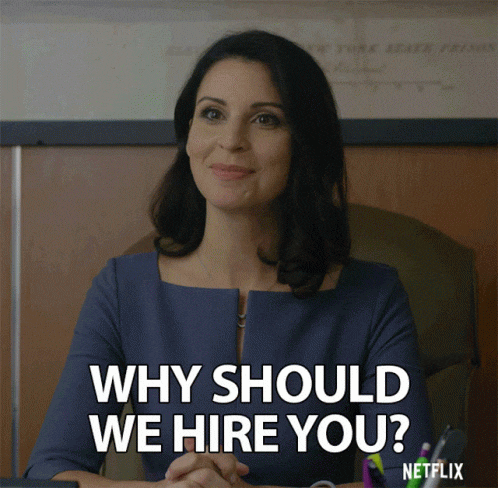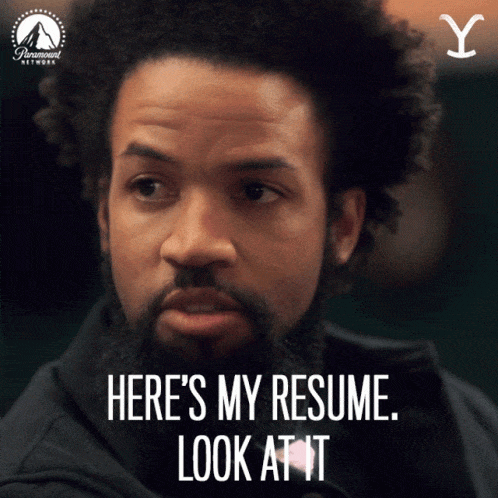Job interviews are different from other types of interviews. It is not an interview for being a sports star, or an influencer.
It is serious business! Money business!
Preparing for an interview includes thinking about questions that you would be asked by the employer. It is also very important to know how to answer these questions.
How to prepare for a job interview
You may think? Do I need to prepare?
Yes, you need to prepare. You can’t storm an interview ground without prior preparation. What people don’t know is that the more time you spend preparing, the better chances you have of acing the interview.
You need to research the company, especially if you do not know much about it. Also, take time to learn about your employer – you can go through the company website or through LinkedIn to find out news and other important information.
You also need to put your appearance into great consideration; dress smartly as if you have been given the job. And most importantly, think about various job interview questions and prepare answers for them.
Job interview questions and answers
You may recognize these questions asked by an employer during past job interviews.
It’s important to note the kind of questions your interviewer would ask and the suitable response they would want to hear from you.
- Letter of Permission To Be Absent from Work
- How to Reply to a Query Letter
- How to Write a Formal Letter
Tell me about yourself
This is one of the first questions you will definitely face.

Most of you might go into detail, talking about where you’re from, your age… That’s great, but unfortunately, the employer is not interested in your life story.
What they need from you are your experiences relating to the job. The full question is, “Tell us about yourself and how you are an excellent fit for the job”, but of course, they won’t tell you that.
So, avoid personal information and information that do not relate to the work/job.
What do we do here?
The employer simply wants to find out if you have done your research on the company. They want to know if you had the initiative to research the company.
Don’t start talking about the founding year. Talk about their achievements and also information based on the role you are applying for.
Why do you want this job?

I know the answer that would come up in your head is, “Because I need money”.
ALSO READ: What is Sapa, Is It a Good Thing?
Your employer knows that too (everybody needs money), but they want to know why you think you’re a good fit for the position.
Be specific about what makes you a good fit for this role, and mention aspects of the company and position that appeal to you most. You can also throw in little compliments but be careful, don’t be a yes-man in the process.
Or, you know, you could also reply with “can you do all the work by yourself?” You obviously don’t need a job as bad as you think.
Why do you think you’re a good fit for the company?

This question is similar to the above but the hiring manager wants to know whether you have all of the required qualifications.
Are you being interviewed for a writer role? Tell the employer about all you learned in school and the previous experience you have had in another workplace. It’s also important to have a portfolio. This would be easy to note that you’re the ideal candidate.
Make your response confident, truthful and focused.
How has your experience prepared you for this role?

Hiring managers mostly ask this question to learn how your previous work experience and educational background fit the job. They know about it (they have your resume, after all), but they want to know if you know what you are saying.
Make a list of the most relevant qualifications you have and match them to the requirements listed in the job description. Share your achievements and accomplishments with them also.
This doesn’t make you cocky; it just makes you confident.
What is your greatest strength?

What is that thing that makes you stand out from other employees?
This is one of the questions that employers almost always ask to determine how well you are qualified for the position. Here, it is important to tell the story. If you’ve been a great communicator, tell stories of how you solved a problem by communicating.
When you are asked about your greatest strengths, discuss the attributes that qualify you for that specific job. These will set you apart from other candidates.
What is your greatest weakness?

This is another important job interview question, and quite a tricky one to answer, because your first instinct is probably to reply that you have none.
Don’t do that.
Everyone has weaknesses. So, what you can do is try framing your answers around positive aspects of your skills and abilities as an employee. This way, you are turning seeming “weaknesses” into strengths.
The hiring manager wants to know whether you can take on challenges and learn new tasks.
SEE:
How Do You Handle Stress and Pressure?
Gen Z are not known to handle stress very well. The employer is aware but wants to know what you would do if things don’t go smoothly at work.

How do you deal with difficult situations?
What do you do when things don’t go smoothly at work? How do you deal with difficult situations? The employer wants to know how you handle workplace stress and disputes.
ALSO READ: Gen Z in the Workplace: How to Handle Them
What Are your long-term Goals?
The employers simply want to know what you are planning. If they hire you, would you be there for a long time? Where do you envision your career going? What do you plan to do for the rest of your life?
This question is designed to find out if you’re going to stick around or move on as soon as you find a better opportunity.
Keep your answer focused on the job skills and also based on your goals.
What Are Your Salary Expectations?

Finally, these are always the last questions that they ask. What do you want for a salary?
Before this, it is important to research the rate at which the job pays. Be realistic and also be affirmative. You don’t want to sell yourself short or price yourself out of a job offer.
Conclusion
Job interviews can be scary but I assure you that with proper preparation, you can ace it and the employers would not regret granting you an interview. Be sure to be firm and know your worth!


